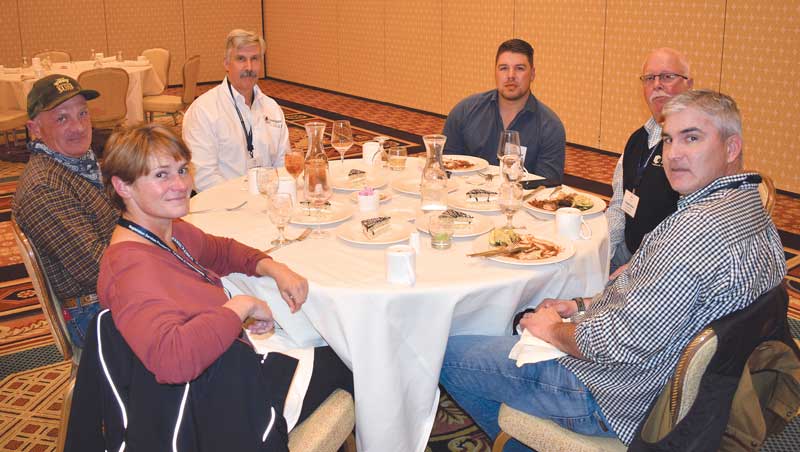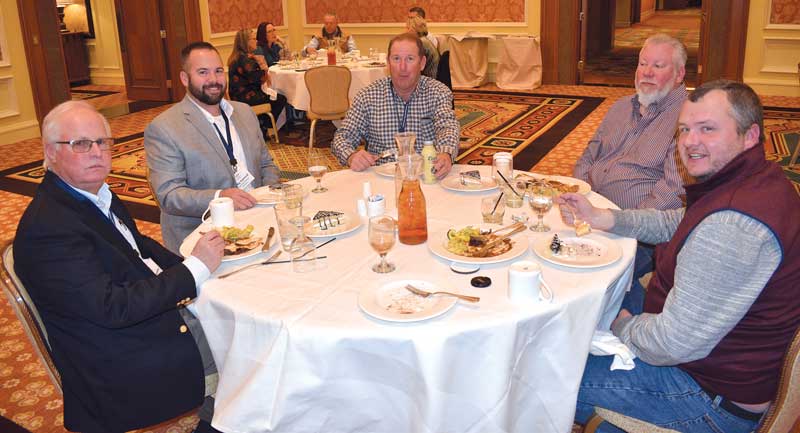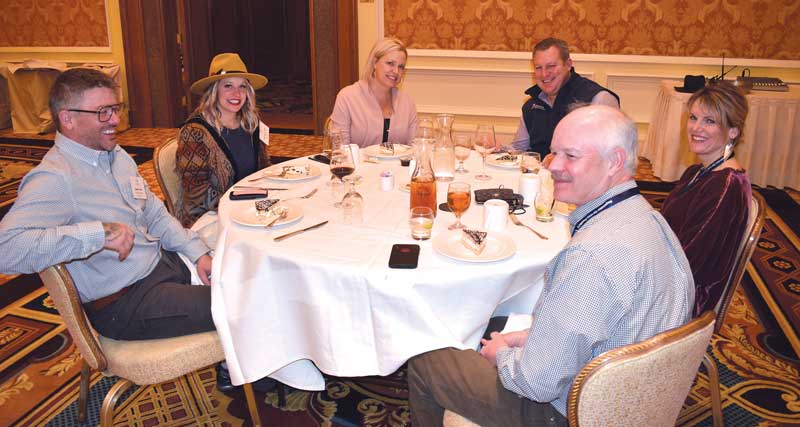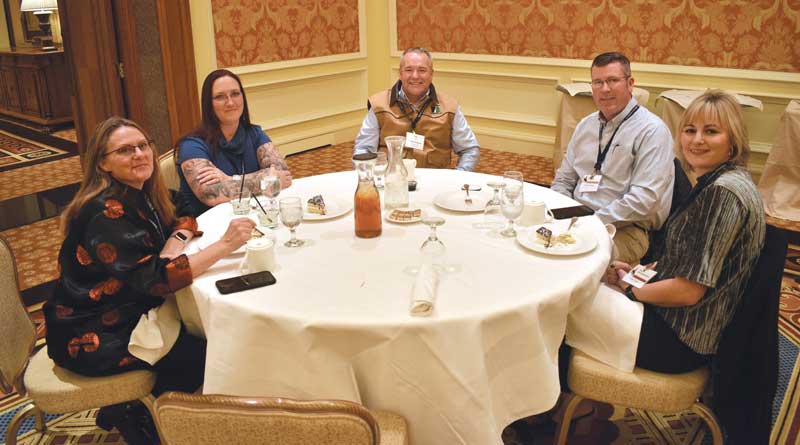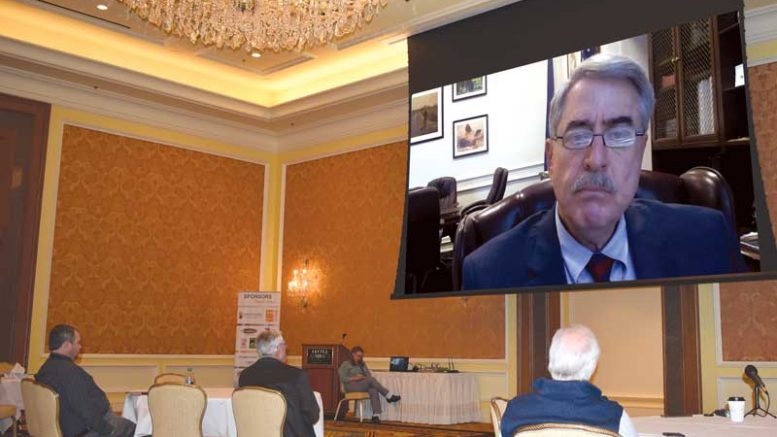Story and photos by Dave Alexander, Publisher
The National Onion Association (NOA) annual convention was actually held in person Dec. 6-9 in Cheyenne, Wyoming, but still had a strong virtual agenda. There was person-to-person networking to be done and the usual award banquet was held, but the key presentations were delivered remotely on a large screen at the Little America Hotel and Resort via Zoom teleconferencing.
Attendance was down appreciably due to the COVID-19 pandemic, but those that made the trip found answers to many questions on topics including trade and food safety.

Here to Help
USDA Under Secretary of Trade Ted McKinney had a message to the growers watching his Zoom talk: we are here to help.
“We want to do anything and everything we can for those of you who produce onions,” he said, declaring that his phone and door are always open and encouraging NOA members to give him feedback.
One way that McKinney’s agency is helping the industry is by calling on Panama to honor its World Trade Organization agreements. U.S. onion exporters have been hindered by Panama’s decision to restrict imports to only those within 75 days of harvest.
“We will not let Panama put up all these false trade barriers based on some ridiculous timing on harvest,” he said.
Trade relations with Canada have also been on McKinney’s agenda. Tipped off that onions were entering the U.S. without being checked by the Canadian Food Inspection Agency, McKinney and his agents went to work. They found several violations.
Onions crossing the border, going north or south, are supposed to be inspected first and then re-inspected after crossing by the other country. Some trucks headed south were skipping their pre-inspection.
In response to the tip, Agricultural Marketing Service (AMS) started doing spot, surprise and unannounced checks. In October 2020, AMS found no infractions, but McKinney said the spot checks will continue.
“We’re not going away. We’re not going to let cheating and what we got passed through USMCA (United States-Mexico-Canada Agreement), we’re not going to let it backslide,” he said.
To hear McKinney’s full presentation, including comments on trade with Europe and Southeast Asia, visit https://youtu.be/h_BIo5-yA_U.
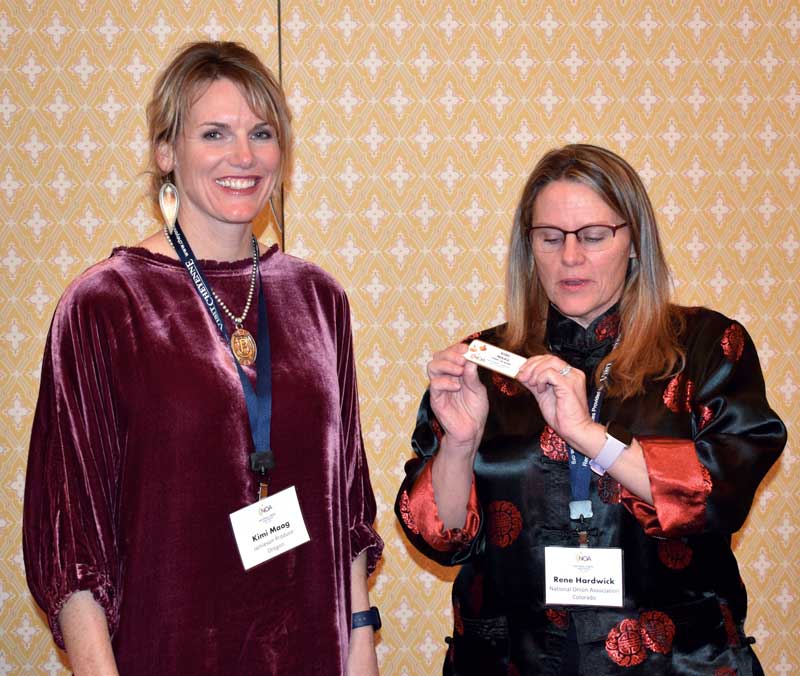
Produce Safety
Dr. Eduardo Gutierrez-Rodriguez with Colorado State University may be a new name to many, but he is anything but an onion rookie. A former director of quality at a fresh-cut facility in Costa Rica, where he oversaw onion growing and processing for retail and fast-food restaurants, and a former researcher in California and North Carolina, Gutierrez-Rodriguez is now an assistant professor in fresh produce safety.
Gutierrez-Rodriguez, along with industry and academic collaborators in Colorado and California (the latter led by Dr. Susan Pheasant of Fresno State’s Institute for Food and Agriculture), is trying to fund a study and start an advisory board that will look into identifying Salmonella risk factors when growing onions.
In the meantime, and while the onion industry waits to hear the final outcomes from the outbreak investigation being performed by the FDA, Gutierrez-Rodriguez suggests some best practices to evaluate and potentially reduce the risks of onion contamination with human pathogens:
- Do field assessments during the cropping cycle and right before harvest, focusing on:
- atypical weather conditions,
- field contamination from atypical animal intrusion, and
- adjacent land use such as proximity to animal operations that can produce runoff or dust.
- Watch for cross contamination between curing and harvest, paying attention to the sanitation of burlap sacks and plastic bins.
- Check water quality and, if needed, treat the water with a scientifically validated treatment.
- When using canals to irrigate, know the quality of backwater prior to use.
- Keep packinghouse clean.
- Implement cleaning breaks between individual lots of onions.
- Develop clear lot identification (traceability).
- Keep interior of shed and onion contact surfaces as dry as possible.
- Clean and sanitize without increasing moisture levels.
COVID-19 permitting, the NOA summer convention will be held in July 2021 in Nashville, Tennessee.
